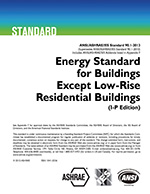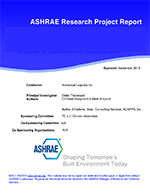In previous work, the authors compared a number of commercially available programs for the design of vertical borehole heat exchangers (BHEx) in residential applications. The objective of this paper is to compare four BHEx design programs and a benchmark simulation for a commercial application. An energy use model of an elementary school served by geothermal heat pumps was calibrated with site-collected data to form the benchmark; the school’s operation was then simulated for a typical meteorological year at the site, and the outputs from the simulation were used as inputs to the four design programs. Since loads at the school are dominated by heating, the programs were exercised to design borefields with minimum inlet water temperatures of 30°F (-1.1°C), 35°F (1.7°C), and 40°F (4.4°C). On average, the depths predicted by the design programs agreed with the depths predicted by the benchmark program to within about ±14%. Three of the programs were found to provide relatively consistent results: their design lengths varied from the benchmark lengths by -7% to +12%, while designs from the other program varied by about 16% from the benchmark lengths. This is consistent with the results obtained for the residential comparison.
Units: Dual
Citation: Symposium, ASHRAE Transactions, vol. 106, pt. 1
Product Details
- Published:
- 2000
- Number of Pages:
- 12
- File Size:
- 1 file , 350 KB
- Product Code(s):
- D-7382


